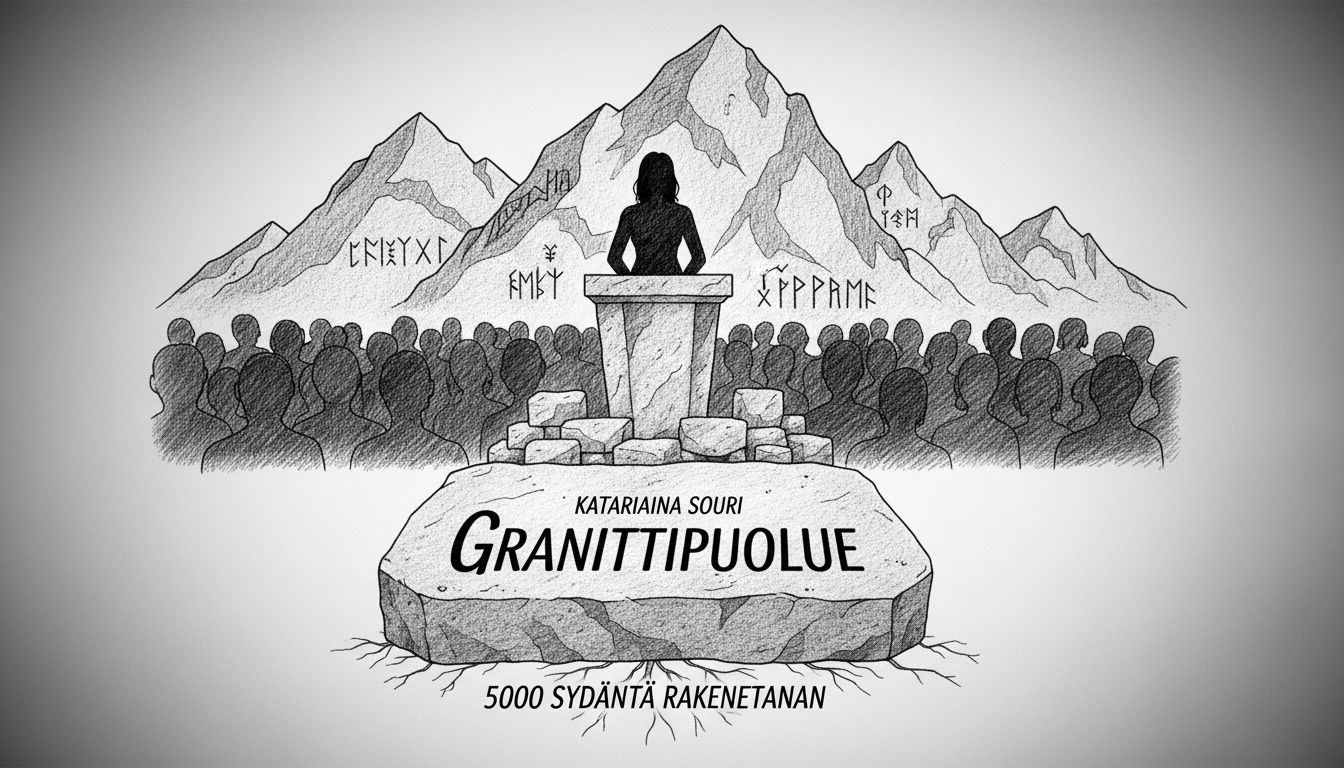Finnish artist Katariina Souri has announced she is founding a new political party called the Granite Party. Souri revealed her plans in a social media statement, confirming that registration documents for Graniittipuolue ry are currently processing with the Finnish Patent and Registration Office.
The artist explained she had not intended to make the announcement public at this stage. She said her core team wants to focus on refining the party platform before seeking official approval for collecting supporter signatures. Souri emphasized they plan to outline specific political objectives only after receiving permission to gather the required 5,000 statements of support from eligible Finnish voters.
Souri described the party's central philosophy as building society and welfare on a solid foundation. The name Granite Party references Finland's national stone, symbolizing their commitment to creating both economic stability and social prosperity. She expressed particular excitement about addressing root causes of societal problems rather than engaging in surface-level political decision-making.
The artist acknowledged she lacks major financial backers and openly called for change-seeking individuals to join her movement. She emphasized the importance of collective power in achieving political transformation.
Finland's political system requires new parties to gather 5,000 supporter declarations from eligible voters before official registration. This threshold ensures parties demonstrate genuine public support before entering the political arena. The requirement has prevented numerous aspiring political movements from achieving official status in recent years.
Political analysts note that new party formations in Finland typically face significant challenges. Established parties dominate the landscape, and breaking through requires substantial grassroots organizing. The Granite Party's success will depend heavily on its ability to mobilize volunteers and articulate a distinct political vision that resonates with Finnish voters.
Artist-led political movements remain relatively rare in Nordic politics. While artists frequently engage in political activism, few attempt to establish formal political parties. Souri's approach recalls occasional crossovers between cultural figures and politics in Nordic history, though most have achieved limited electoral success.
The timing of this announcement comes during a period of political fragmentation in Finland. Several smaller parties have gained traction in recent elections, suggesting potential openness to new political alternatives. However, the Granite Party must clearly differentiate itself from existing options to capture voter attention.
International observers of Nordic politics will watch whether Souri's movement can translate artistic vision into practical political organization. The coming months will reveal whether the Granite Party can gather the necessary support to become Finland's newest registered political party.

